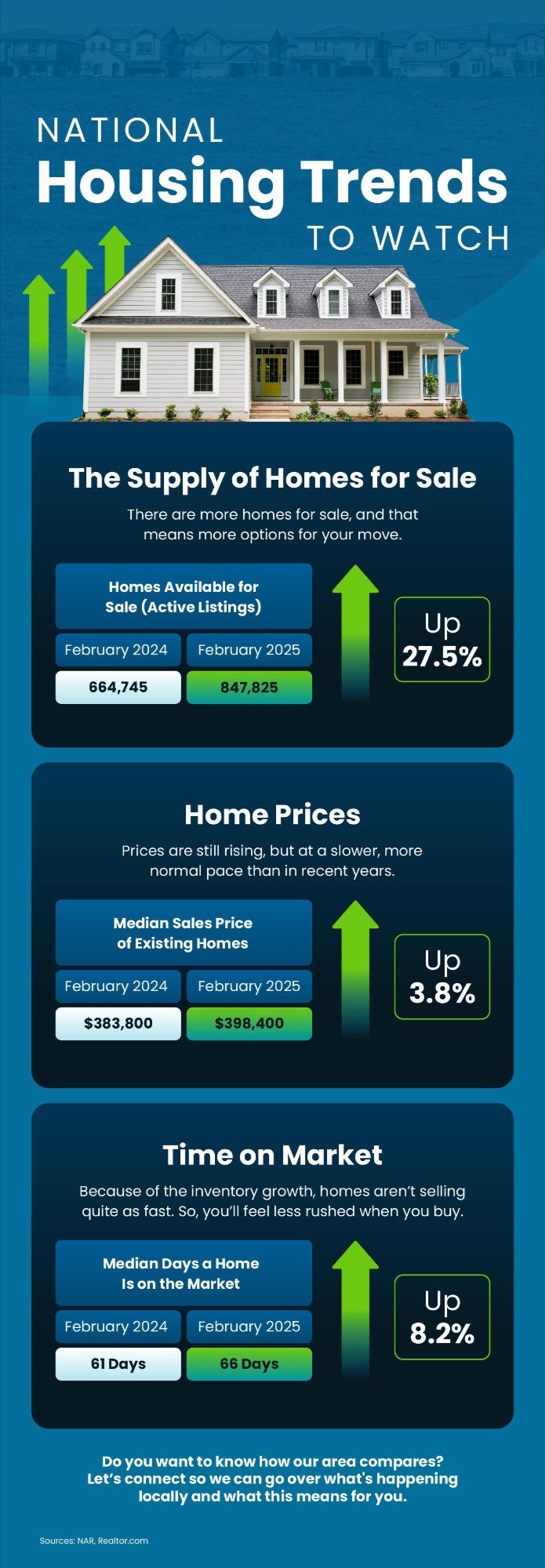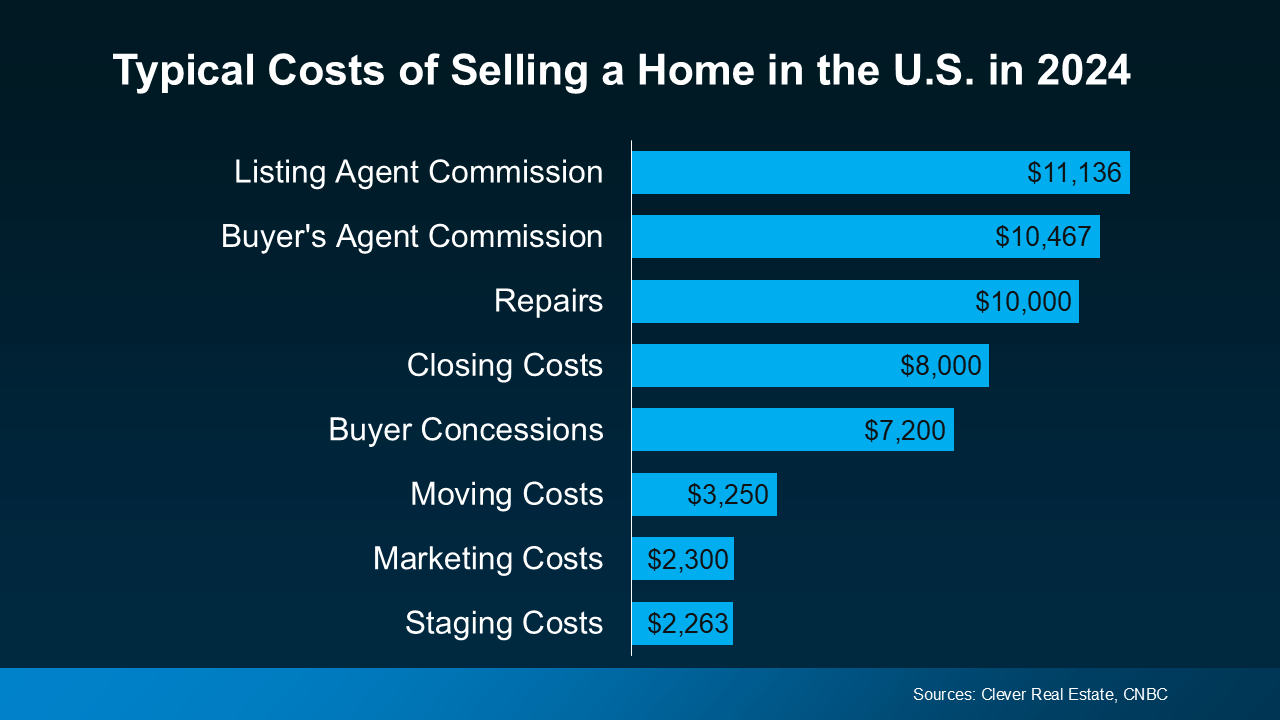How Much Does It Cost To Sell My House?
How Much Does It Cost To Sell My House?

If you're considering selling your house, you're likely curious about the costs involved. The final amount will depend on several factors, such as the offer you accept, whether you assist with the buyer's closing costs, the repairs you decide to make, and more.
To give you a rough idea of what to expect, here’s an overview of a few key expenses you should be prepared for (see graph below):
Here's something to keep in mind that puts those costs into perspective: most homeowners today have built up significant equity in their homes. This means when they sell, they’re likely to see substantial gains. Chances are, you will too. That equity can help offset selling costs, and you may even have enough left over to apply toward your next home purchase.
Let’s break down a few of the costs from the graph above, giving you more context on what they entail and where you might be able to save money when it makes sense.
Closing Costs and Commission
These are the fees you'll pay at the closing table to cover different aspects of the sale. In addition to your own closing costs, you may also offer to cover some of the buyer’s costs as a concession. As U.S. News Real Estate explains:
“Closing costs are fees that are paid to finalize the transaction and transfer ownership of the home to the buyer . . . Sellers can expect to pay 2% to 4% of the sale price of the home in fees and taxes on top of the agent commission. Based on the national median home sale price, this means that closing costs in 2023 for sellers are about $7,740 to $15,480. . .”
Taxes will vary by state, and agent commissions depend on what you agree upon from the start. It's important to remember that the numbers in the chart above are just examples, not exact figures. Additionally, if you've already paid toward things like property taxes or mortgage escrow as part of your current mortgage payments, you may receive a credit back at closing. This can help offset some of your selling expenses.
Pre-Listing Inspection and Repairs
Some sellers opt for a pre-listing inspection to get ahead of any issues that could arise during the buyer’s inspection. This helps identify potential problem areas that a buyer might later request a credit or concession for.
By addressing any necessary repairs before listing, you can ensure your home makes a great first impression.
If you’d prefer to skip the inspection, your agent can still guide you. They can offer advice on things like paint colors, small cosmetic repairs, and what buyers are generally looking for, helping you focus on updates that are most likely to deliver a solid return on investment.
Home Staging
As inventory increases, it’s a good idea to take a few extra steps to help your house stand out. Staging is an optional strategy to enhance your home’s appeal. This could involve bringing in rental furniture for a vacant home or adding artwork to warm up the space. Some staging can even be done virtually after photos are taken. But how much does it cost? According to Bankrate:
“Home sellers typically pay somewhere between $782 and $2,817 in home staging costs . . . but the price tag can vary widely.”
If you decide to skip staging, you can rely on your agent’s advice to enhance your home’s presentation. A great agent might suggest removing a chair to improve the room’s flow, laying down a rug to add warmth, or taking down personal photographs to de-personalize key areas. These small adjustments can make a big difference in how potential buyers perceive your space.
Why Leaning on an Agent Is Key
If you’re looking to reduce costs, there are ways to save, but it’s important to be strategic. While you can skip optional steps like staging or a pre-listing inspection, it’s crucial not to cut corners by selling without a professional.
An agent is your expert throughout the entire process. They’ll provide tailored advice on everything from staging the home to deciding which repairs are worth doing, potentially saving you from hiring an outside stager or paying for a pre-listing inspection.
Beyond that, your agent adds value by crafting personalized marketing and pricing strategies that showcase your home’s best features, including any improvements you’ve made. This can ultimately help your home sell for more in the long run.
Bottom Line
Looking for a clearer idea of what to expect when selling your home? Let’s connect and walk through the process together.
Categories
Recent Posts











